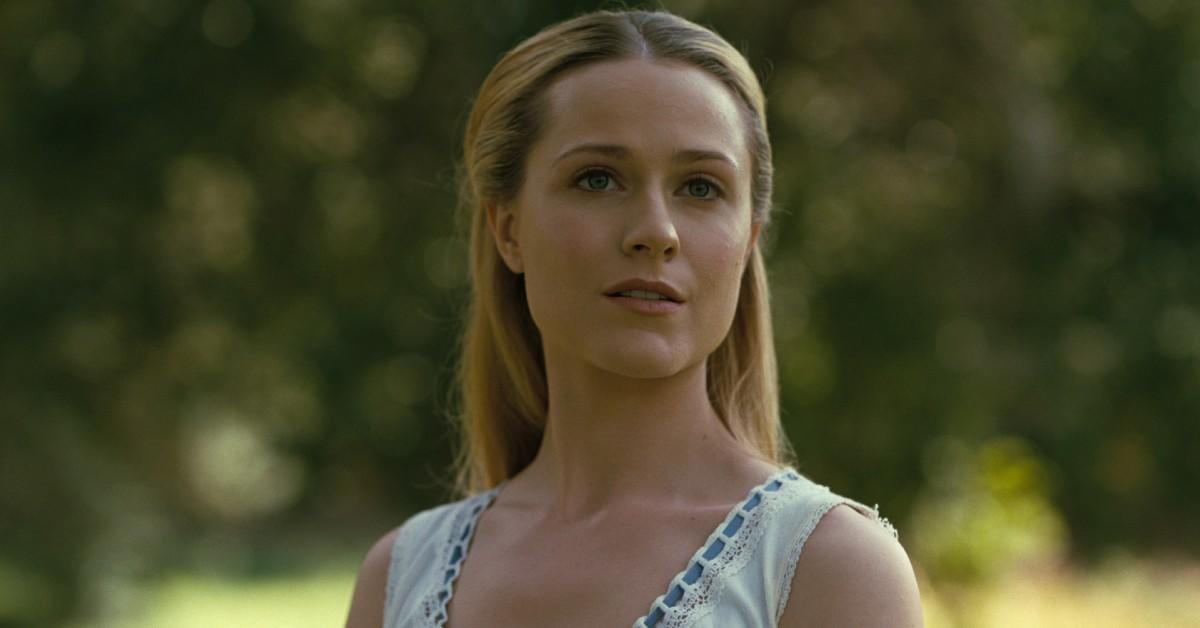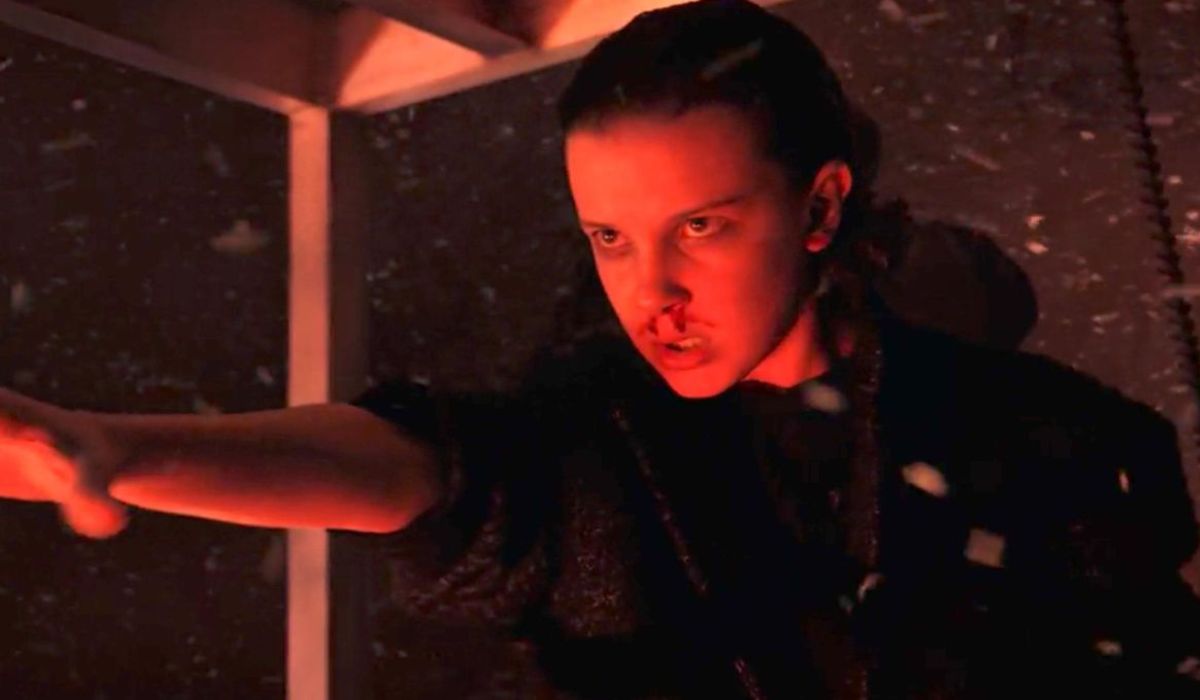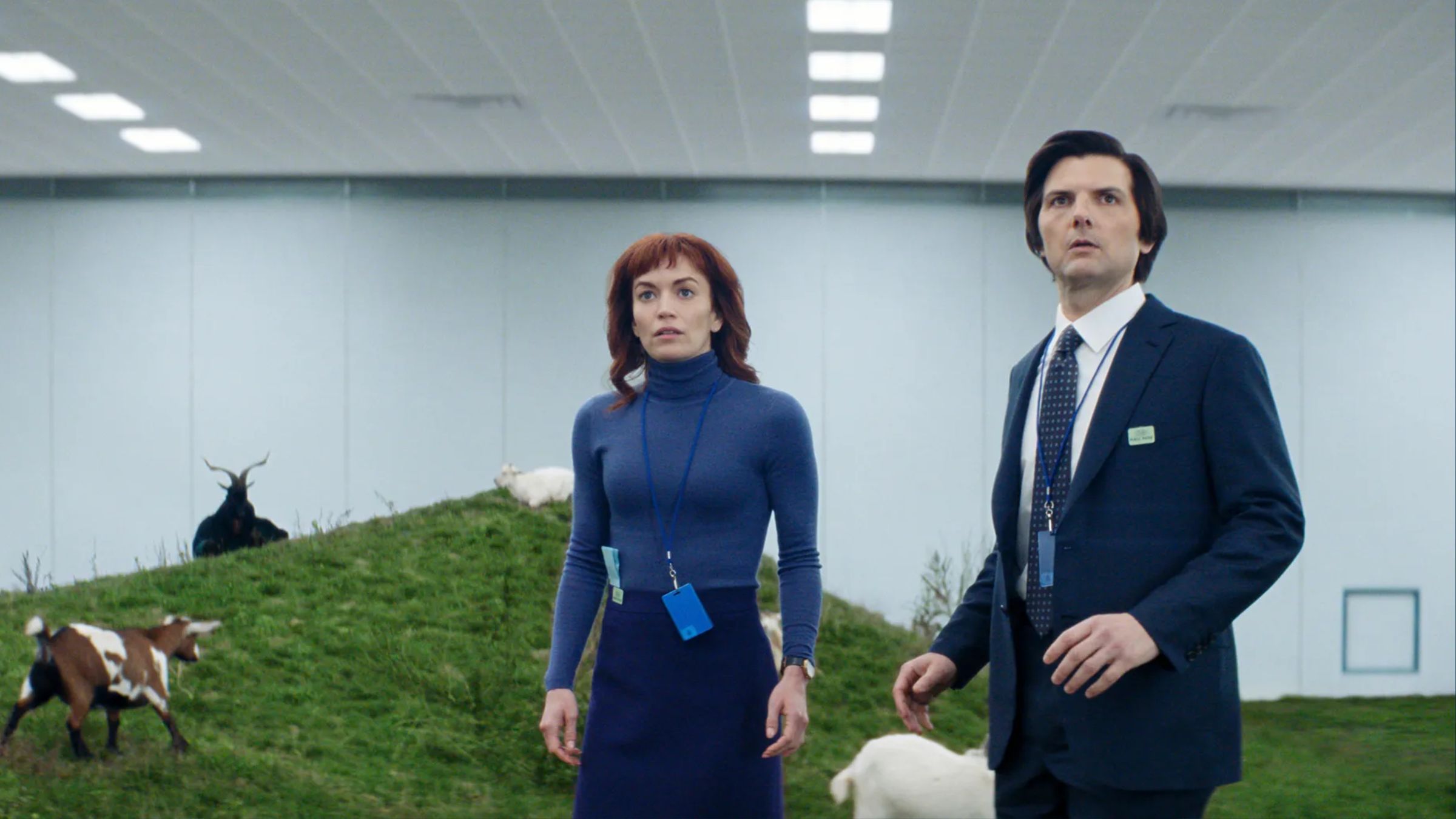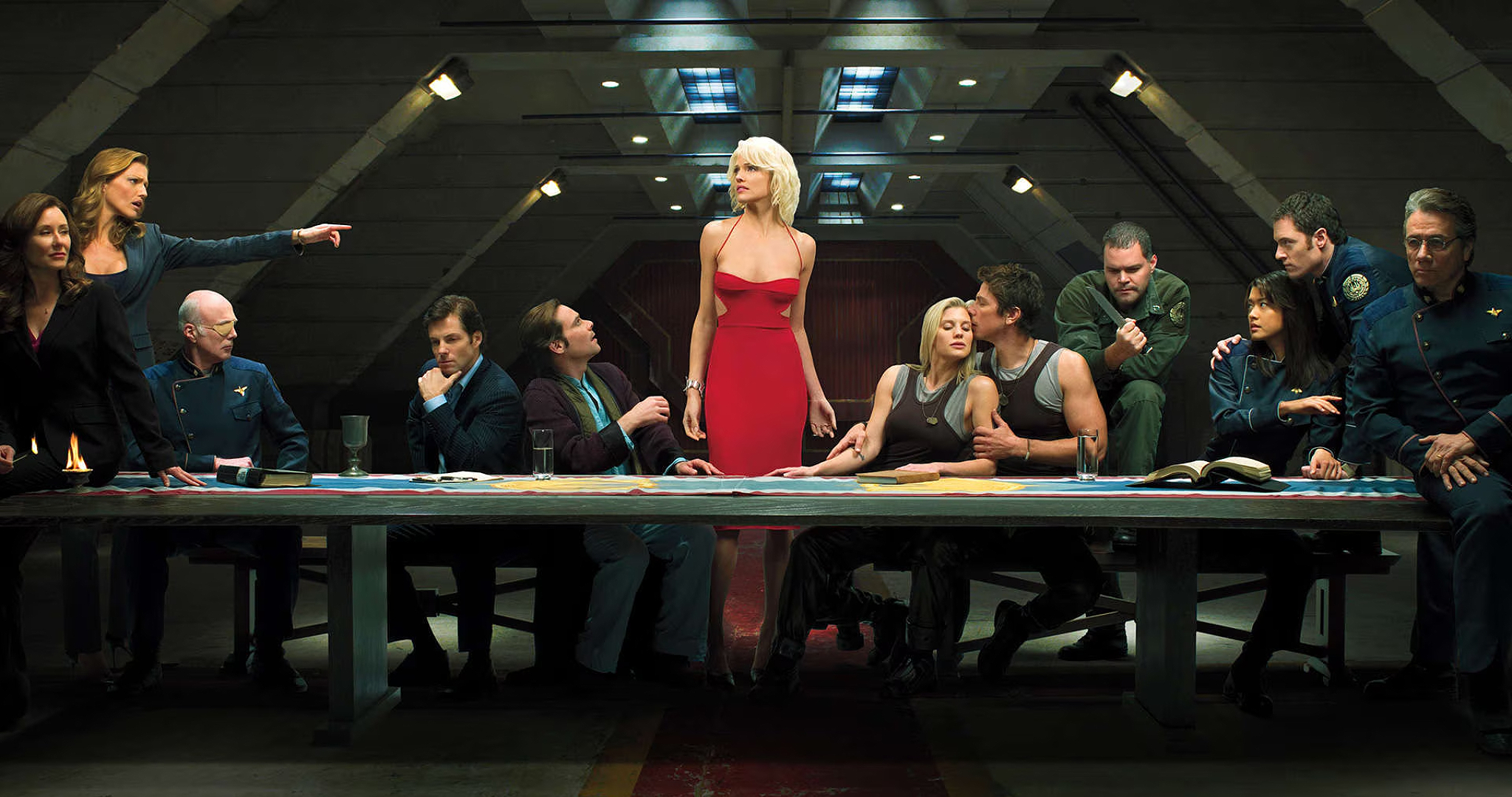
This century has seen a remarkable evolution in science fiction TV, moving far beyond the days of flimsy sets and homemade props. Science fiction is no longer confined to niche audiences; it’s now a mainstream genre that’s highly acclaimed, frequently awarded, and enjoyed by millions. These shows have pushed boundaries, offered unforgettable viewing experiences, and even offered glimpses into potential future societies.
In the 21st century, the surge of science fiction entertainment caters to all preferences. Whether you’re seeking intricate plot twists that challenge your mind, spine-tingling cautionary tales to keep you on edge, or visually stunning displays to marvel at on your high-definition TV, these series have pushed the boundaries of the genre and solidified their status as some of the finest sci-fi shows in this millennium.
10) Westworld

If the entire series of Westworld had continued to match the quality of its first season, it would probably rank higher on this list. Unfortunately, some viewers were lost in later seasons due to complex plotlines becoming disorganized. Despite this, Westworld, produced by Jonathan Nolan and Lisa Joy based on Michael Crichton’s 1973 film, remains a significant contribution to 21st-century television. The initial season was set in a high-tech Western amusement park where visitors act out violent desires with lifelike robots called “hosts.” Beneath the surface of saloon gunfights, a complex and ambitious science fiction mystery unfolded.
In the series Westworld, starring Evan Rachel Wood as Dolores, the show challenged us to question what separates artificial beings from real ones. As their stored memories began to seep into their programming, the show manipulated time in an intricate manner. The plot twists, which included interconnected timelines and characters being revealed as artificial, allowed viewers to delve deeply into these profound themes through the perspective of the hosts with a strong emotional resonance. Although later seasons added new layers to the story, they didn’t quite rekindle the same excitement and narrative finesse associated with the early wild-west setting.
9) Orphan Black

Discussing the TV series “Orphan Black” without acknowledging Tatiana Maslany’s remarkable performances would be like ignoring the sun when talking about a day at the beach. For an astounding five seasons, she breathed life into over a dozen genetically identical clones, each with unique personalities, histories, and emotional journeys. From portraying suburban soccer mom Alison to the hacker punk Cosima, to the traumatized assassin Helena, her acting ability is nothing short of incredible. Maslany’s performances were not only captivating but also essential to the show’s popularity. Beyond the acting, “Orphan Black” was a clever, intricate thriller that explored various aspects of science fiction, such as biotech morality and surveillance culture.
Initially, “Orphan Black” began as a captivating, intrigue-filled drama centered around conspiracy theories. However, it evolved to delve into profound themes such as sisterhood, self-determination, and the struggle against oppressive systems. This compelling series skillfully intertwined science with personal stakes, linking questions about identity and bodily autonomy to corporate avarice. With its distinctive blend of genres, it cultivated a dedicated fanbase and paved the way for a new wave of television featuring intricate female characters.
8) Fringe

Initially considered a copycat of “The X-Files,” the show “Fringe” soon forged its unique path as one of the boldest science fiction series during its era. Created by J.J. Abrams, Alex Kurtzman, and Roberto Orci, this program revolved around the investigations conducted by Fringe Division, a special government unit responsible for examining inexplicable occurrences. Yet, it broke free from the conventional format by incorporating multiple dimensions, parallel timelines, and manipulating realities.
In the TV series Fringe, an outstanding ensemble featured Anna Torv, Joshua Jackson, and John Noble. Their acting was crucial as the show balanced themes of family, self-sacrifice, science, and monstrous elements. Particularly noteworthy was John Noble’s portrayal of Walter Bishop, a character who grew to be highly cherished in contemporary sci-fi. As the story unfolded, it delved deeper into serial storytelling, eventually transforming a thrilling conspiracy mystery into an emotionally resonant sci-fi epic during its final season.
7) Stranger Things

Though Stranger Things openly shows its inspiration, it has undeniably become unique and hugely popular. Developed by the Duffer Brothers, this series skillfully merges 80s nostalgia, supernatural chills, sci-fi mysteries, and heartwarming adolescent stories. The main cast of young characters, featuring Millie Bobby Brown’s Eleven and Finn Wolfhard’s Mike, lends an air of friendship to the series amidst the chaos caused by the Upside Down, as it unleashes fearsome monsters and hidden secrets on their peaceful Indiana community.
In simpler terms, “Stranger Things,” a massive hit for Netflix, has achieved much of its popularity by blending a nostalgic atmosphere with memorable characters. The character arcs of Eleven, Hopper, and Max, each dealing with their unique challenges, have made an emotional impact on viewers. This show is essentially a tribute to the 80s, successfully introducing horror, sci-fi, and monster themes to a vast new audience. While it’s uncertain if Season 5 will maintain the series’ high standards, there’s no question that “Stranger Things” has already made a significant impact on popular culture.
6) Firefly

Speaking about television series, it’s hard to find one that matches the devotion generated by “Firefly” after its cancellation. Produced by Joss Whedon, this unique blend of space and Western themes was abruptly halted by Fox after airing only one season. Despite its brief run of just fourteen episodes, it crafted a captivating universe centered around an endearing group of ragtag smugglers and offered compelling science fiction narratives. The high DVD sales revived its popularity to such an extent that a sequel film, “Serenity,” was produced to tie up the show’s open ends.
To the mysterious River Tam, from Captain Mal Reynolds, every team member on board the Serenity provided unforgettable instances and lines that continue to be quoted, such as “We won’t die, Bendis. Why? Because we are so incredibly, attractive.” Although its run was brief, the dedicated fanbase of Firefly remains vibrant and eagerly awaits a potential comeback.
5) Severance

Apple TV+’s “Severance” is a thought-provoking workplace thriller that feels both contemporary and eternal. The series, largely helmed by Ben Stiller with Dan Erickson as creator, revolves around Lumon Industries, where workers undergo a unique surgery to separate their consciousness between work and personal life. This separation leads to an intriguing exploration of identity and existence, wrapped up in a suspenseful narrative that’s packed with unsettling surrealist visuals, a chilling soundtrack, and remarkable performances from Adam Scott, Britt Lower, and Patricia Arquette.
In a symbolic representation of work-life imbalance and corporate manipulation, the show “Severance” excels, particularly in its outstanding episodes such as Season 2’s “Chikhai Bardo.” The series skillfully employs cinematic techniques, with each set element, color selection, lighting arrangement, and prolonged shot adding to the eerie atmosphere. Viewers who are patiently rewarded by the show’s deliberate pace and gradual unveiling find themselves eagerly anticipating more. With its unique low-fi sci-fi concept, it’s nearly flawlessly executed, making it one of the most original in recent years.
4) Doctor Who

The 2005 comeback of “Doctor Who” revitalized this long-standing British tradition, offering it a contemporary twist. While maintaining its trademark time-travel antics, the series adopted a novel approach, focusing on standalone episodes to narrate its tales in a more cinematic manner. With the leadership of creators like Russell T Davies and Steven Moffat, the show reimagined the Doctor as a solitary extraterrestrial with the ability to experience genuine affection and sorrow.
With each reincarnation, a fresh, distinct adventure unfolded, featuring outstanding portrayals such as David Tennant’s Tenth Doctor and Matt Smith’s Eleventh that left an indelible mark on the series for a new cadre of enthusiasts. Ranging from the poignant “Doomsday” to the chilling “Blink,” the reboot demonstrated its ability to maintain its witty spirit while delving deeper into character development. Doctor Who consistently reinvented itself with each new phase, and though it may falter at times, its vast scale makes it a must-watch.
3) The Expanse

For enthusiasts of intricate science fiction, “The Expanse” is an eagerly awaited masterpiece. Derived from the renowned novels by James S.A. Corey, this series offers a richly developed solar system brimming with sophisticated characters, intricate politics, and a persistent tension that could ignite war at any moment. The meticulousness in every aspect – from zero-gravity battles to the deepening chasm between Earth, Mars, and the Asteroid Belt – results in a fully formed cosmos that invites viewers to delve deeper.
The exceptional quality of The Expanse lies in its character development. The crew aboard the Rocinante, headed by the stoic captain James Holden and beloved mechanic Amos Burton, forms a sort of family as they journey through the perilous galaxy. Initially presenting as a mystery or detective-style series with a noir flair, the show transforms into a cosmic horror epic, yet always retains its focus on compelling human drama. Following its cancellation by Syfy, Amazon took up the series due to strong fan support, enabling it to complete its narrative and solidify its status as one of the most outstanding science-fiction epics on television.
2) Black Mirror

Among today’s shows, none has more effectively mined our contemporary consciousness or cashed in on our apprehensions regarding technology quite like “Black Mirror.” This thought-provoking anthology series, conceived by Charlie Brooker, delves into the complexities of human interaction with technology via chilling, frequently dystopian narratives. Initially broadcasted in the UK, the show’s acquisition by Netflix allowed it to reach a worldwide audience, making episodes such as “Nosedive,” “San Junipero,” and “Hang the DJ” instant hits. Each self-contained story serves as a cautionary tale, seamlessly blending the structure of “The Twilight Zone” with the most profound and unsettling fears of our modern era.
Black Mirror stands out as a thought-provoking series due to its portrayal of future scenarios that seem eerily plausible, almost like they could be tomorrow’s news headlines. The show offers a blend of cynicism, beauty, and rare optimism in some episodes, adding layers of depth and complexity that resonate with both viewers and critics. Each new episode encourages us to examine our own values and consider how far we’re prepared to push boundaries for the sake of progress. While some fans may find the show’s impact diminishing over time, many still regard it as the most authentic and cautionary science fiction series of contemporary times.
1) Battlestar Galactica

In Ronald D. Moore’s revamp of “Battlestar Galactica,” he miraculously turned a 70s show that seemed cheesy into one of the most thought-provoking science fiction series of the modern era. After a destructive AI attack by machines called Cylons, the story revolves around the remaining humans as they embark on a quest for Earth. This journey offers more than just entertainment; it’s a masterful exploration of complex themes.
Moore’s reinvention emerged post-9/11; it presented a daring political metaphor that delved into military excess, torture, religious fanaticism, and the ethical sacrifices made for survival. Battlestar Galactica compelled viewers to grapple with challenging questions about what conduct can be justified in the face of extinction. The series’ depiction of a fractured human society offered insightful commentary on contemporary politics, and it portrayed leadership as an arduous responsibility, with Edward James Olmos and Mary McDonnell delivering unforgettable performances as Admiral Adama and President Roslin. Battlestar Galactica served as a model for serialized sci-fi, pioneering the path for series like The Expanse and Westworld to explore moral intricacies and long-form narratives. Its critical success, which encompassed a Peabody Award and a few Emmys, solidified its status in TV history, and its influence on the genre remains apparent today.
https://comicbook.com/tv-shows/news/10-greatest-pilot-episodes-in-sci-fi-tv/embed/#
Read More
- How to Get the Bloodfeather Set in Enshrouded
- Gold Rate Forecast
- Where Winds Meet: How To Defeat Shadow Puppeteer (Boss Guide)
- 32 Kids Movies From The ’90s I Still Like Despite Being Kind Of Terrible
- Survivor’s Colby Donaldson Admits He Almost Backed Out of Season 50
- Meet the cast of Mighty Nein: Every Critical Role character explained
- Best Werewolf Movies (October 2025)
- Best Controller Settings for ARC Raiders
- Auto 9 Upgrade Guide RoboCop Unfinished Business Chips & Boards Guide
- 10 Movies That Were Secretly Sequels
2025-08-05 21:44